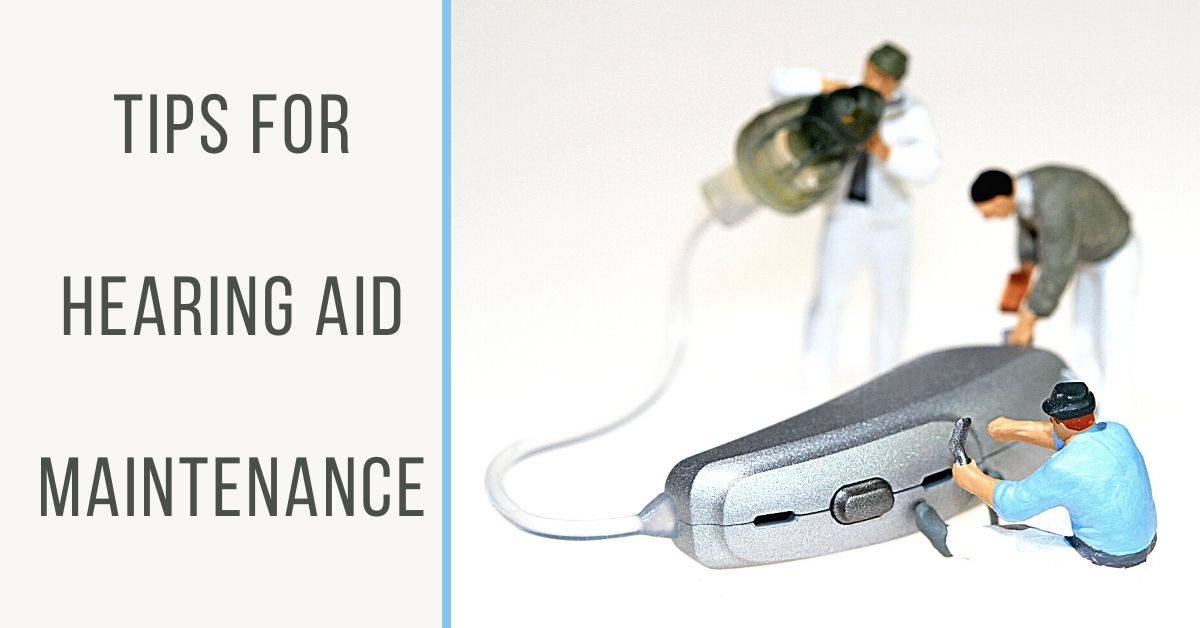A significant part of owning and managing your hearing aids is “the upkeep”. While emergencies and incidents happen you can avoid problems by learning how to clean your hearing aids properly.
Cleaning your hearing aids can, at first, seem daunting as many people feel unsure about messing with the devices they have invested time and money into acquiring. However, with enough practice, you will be able to maintain your devices with confidence and it will do wonders for the everyday operations and longevity of your hearing aid.
Here is some advice for maintaining your devices and extending the life of your hearing aid.
Clean a little every day
Your hearing aids can become dirty with daily use and have normal buildup of earwax over time. Although earwax is vital in protecting your ears it can also adversely affect your hearing aid functions. If there is too much wax clogging your device it can affect the hearing aid components – mostly the receiver or microphone – which means you will not get the most out of your device.
Your ears may produce more earwax than usual when wearing hearing aids. It’s essential to clean your hearing aids when this happens. As suggested to you by your audiologist use a small wire brush to do so. Use the brush to scrub down the domes and use a clean cloth to wipe the body of your hearing aid before putting it away for the night. Your hearing aids do come with this brush that you will need for cleaning.
Protect your hearing aid from falls
Typically you will not damage your hearing instrument if you drop it on the carpet, rug, or upholstered furniture. However, hard floor surfaces or countertops can damage hearing aids. While you learn to insert the hearing aids correctly try putting a pillow on your lap or a towel on the kitchen counter.
Protect your hearing aids from the elements
Before you shower or swim remove your hearing aids. It would be best if you did not leave the devices in the bathroom due to the elevated ambient humidity. The delicate circuitry in your hearing aids can be affected by moisture and condensation.
Aside from moisture, don’t place the hearing aids in indirect heat. Sometimes you might want to speed up the drying process by putting your hearing aids close to direct heat, but this will do severe damage to your hearing aids.
Perform these two nightly routines
Before going to bed remove the batteries. This provides many advantages including improving battery life, allowing your hearing aids to dry out completely, preventing your devices from inadvertently switching on while not in use, and encouraging proper battery compartment cleaning including battery contacts.
Also, keep your hearing aid dry by placing it and the battery with a drying agent (desiccator) overnight in a sealed bottle. This will protect the hearing aids by keeping the moisture from the humidity at bay.
Go for routine checkups
Hearing aids should be professionally cleaned every quarter. Audiologists have vacuums that gently suck wax from hard-to-reach places with advanced attachments and they know how to clean vents, microphone windows, windscreens, and receivers.
While you’re there, ask your audiologist for assistance if you are not sure how to clean your hearing aids correctly or if you believe your devices require special attention.
When the sound is not right your device might need reprogramming
You should make an appointment with your audiologist if you are worried that you aren’t getting the best out of your hearing aids. Today’s hearing aid technology is complicated and incomplete or inadequate programming can significantly impact how well your hearing aids perform to meet your specific needs.
Use your warranty
A manufacturer’s warranty provides excellent insurance for your hearing aids and ensures you get any repairs you need. It is vital to learn about the terms of your warranty. Come and see us for an appointment to ensure there are no issues with your devices should your warranty be running out soon.
The Hearing Health Center of Houston
If you require maintenance or repairs for your hearing aids our team is here to help! Contact us today for professional hearing aid care.


